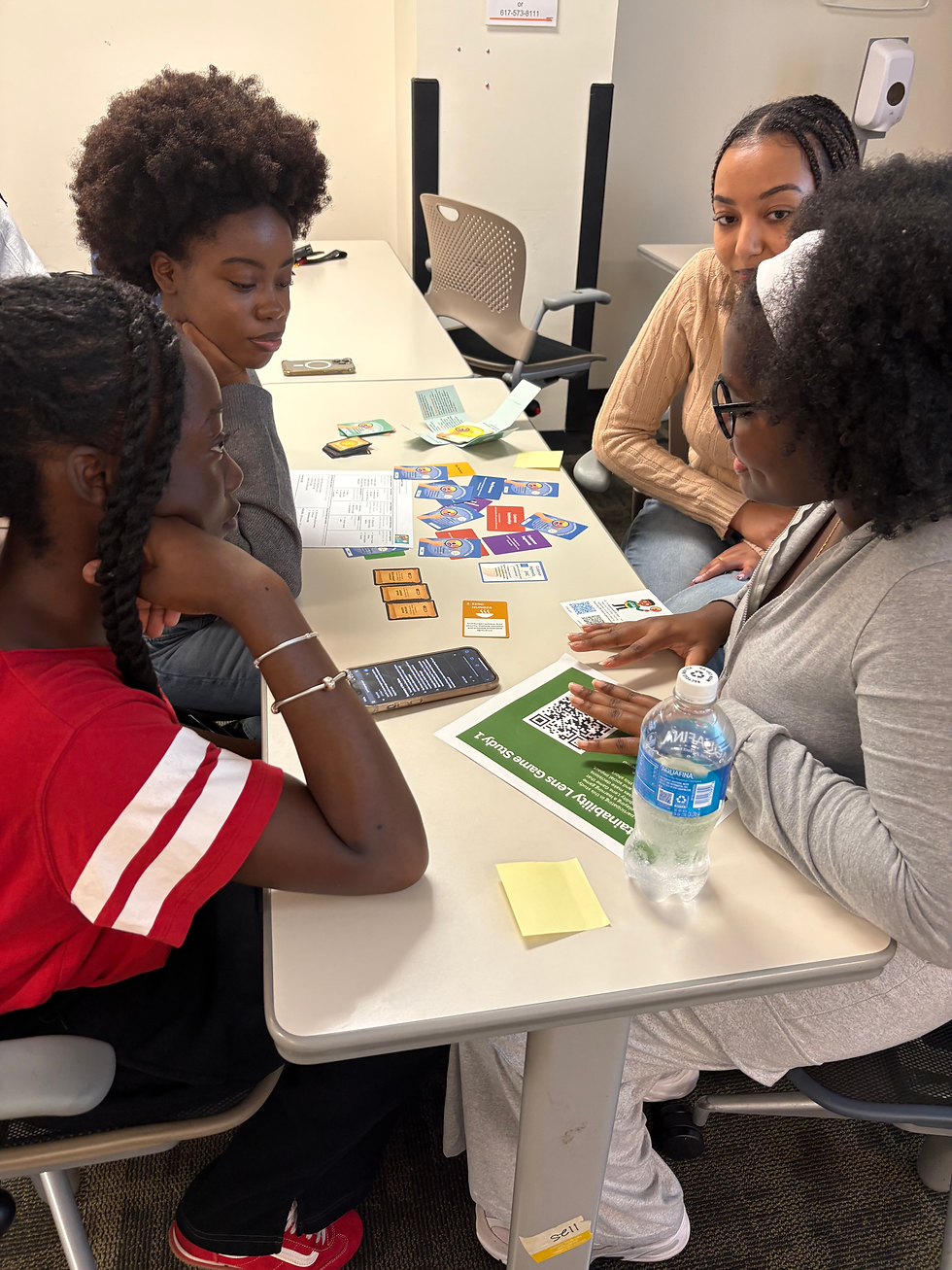The AI-Enhanced Sustainability Lens Game: Advancing Experiential Learning in Sustainable Innovation
- Tamara Stenn

- Aug 3, 2025
- 3 min read

The Sustainability Lens Game has long been recognized as a powerful experiential learning tool for exploring sustainable development, entrepreneurship, and systems thinking. With the integration of generative AI, the new version of the game expands its educational potential, offering deeper, more adaptive engagement with the United Nations Sustainable Development Goals (SDGs) and the sustainability dimensions of innovation and enterprise.
Developed by Dr. Tamara Stenn and rooted in over two decades of applied research and teaching, the game uses four analytical "lenses" - Resources, Health, Exchange, and Policy - to guide players through complex systems and encourage sustainable decision-making. Now, with AI enhancements, the game provides individualized support, tailored prompts, and responsive feedback that allows players to explore scenarios in greater depth and relevance.
How AI Improves the Learning Experience

The integration of AI into the Sustainability Lens Game as a Lifeline Coach introduces several pedagogical improvements:
Customized, context-sensitive coaching: The Lifeline Coach responds to player input with questions and suggestions aligned to real-world sustainability issues, fostering critical thinking and reflection.
Automated SDG alignment: As learners design and iterate business ideas, the Lifeline Coach identifies connections to relevant SDGs, encouraging a global perspective on local action.
Interactive exploration of trade-offs: The Lifeline Coach enables participants to simulate outcomes of different decisions, helping them understand tensions and synergies across environmental, social, and economic dimensions.
These improvements enhance the original game’s capacity to serve as a multidisciplinary teaching tool in business, environmental studies, policy, and innovation education.
Applying the Game: A Lemonade Stand Case Study

The AI-enhanced version begins with a familiar scenario: a lemonade stand. This simple model serves as an entry point to explore more complex sustainability questions. Here is how the AI guides learners through the four lenses:
1. Resources Lens
Players consider how raw materials are sourced. The Lifeline Coach may prompt reflection on the environmental impact of using disposable cups versus compostable ones or propose sourcing organic lemons from local or certified suppliers. This connects to SDG 12: Responsible Consumption and Production and introduces lifecycle thinking.
2. Health Lens
The Lifeline Coach can help address issues of labor, safety, and community well-being. Questions may include: Are workers fairly compensated? Is the lemonade stand inclusive and accessible to different customers? Could it provide nutritious alternatives? These considerations relate to SDG 3: Good Health and Well-being and SDG 8: Decent Work and Economic Growth.
3. Exchange Lens
Instead of relying solely on monetary transactions, the Lifeline Coach invites exploration of alternative forms of value exchange such as bartering, community credits, or donations. This supports broader thinking about economic inclusion and social capital, aligning with SDG 10: Reduced Inequalities.
4. Policy Lens
Participants are prompted to consider regulations, licensing, and public infrastructure. Could the lemonade stand model advocate for sustainable small-business policies or inspire community action, such as local composting initiatives? These discussions align with SDG 11: Sustainable Cities and Communities and SDG 16: Peace, Justice, and Strong Institutions.
This multidimensional analysis of a basic enterprise encourages students to adopt a systems perspective on entrepreneurship and sustainability.
Educational Applications and Impact
The AI-enhanced Sustainability Lens Game offers three adaptable formats - Speed Game (30 minutes), Basic Game (60 minutes), and Full Intensive (up to 150 minutes) - making it suitable for a wide range of educational settings, from introductory workshops to advanced university seminars.
Its value lies in its ability to:
Promote integrative thinking across disciplines
Foster reflective and ethical decision-making
Engage learners in applying theory to practice
Cultivate awareness of global sustainability frameworks like the SDGs
Whether used in classrooms, community workshops, or professional development settings, the game functions as a scaffold for understanding complex sustainability challenges and identifying entrepreneurial responses.
Conclusion
The AI-enhanced Sustainability Lens Game represents a significant step forward in sustainability education. It combines the strengths of experiential learning, systems thinking, and real-time AI support to help learners critically examine how business decisions interact with social and ecological systems. Beginning with a simple lemonade stand, the game scales to complex, real-world challenges, demonstrating how innovation and enterprise can be harnessed for sustainable development.
For more information and access to the game, visit: www.sustainabilitylensgame.com



Comments